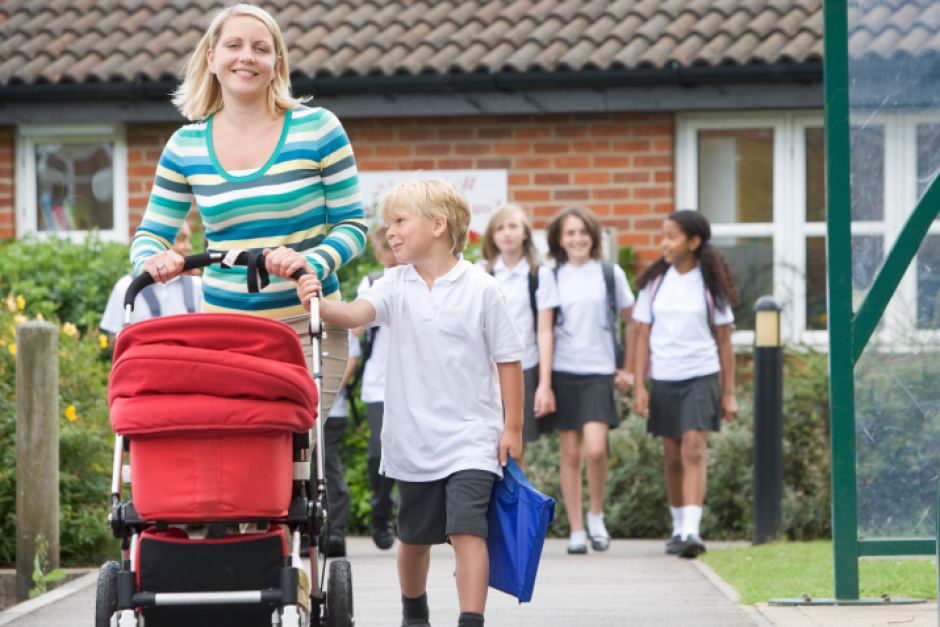Why parents should stop doing so much for their kids

According to a dietitian I heard on the radio recently, organic fruits and vegetables are healthier than produce grown with pesticides, fertilisers and other aids. The dietitian explained that because organic produce has to fend for itself, it has to work harder as a plant if it is to thrive and flourish.
Organic plants work harder than conventionally grown plants to stave off pests. They work harder to extract nutrients from the soil. In short, because there is no farmer keeping all the bad stuff away and giving extra liberal doses of manufactured nutrients, organic plants have to be hardier, grittier, more resilient, if they are to survive.
All of this hard work means organic vegetables have greater nutrient density than our normal produce. In the simplest possible terms this means that organic produce has more good stuff in it than vegetables grown with pesticides.
Drawing a comparison between kids and vegetables
Our children are just like the vegetables I’ve mentioned. No, I’m not talking about the fact that they sit on the couch and stare at the TV (although there is something analogous there, too).
What I do mean is this: if we want our children to thrive and flourish, ultimately becoming hardy, resilient and able to respond to challenges from pests in their environment, we need to make sure that they are exposed to challenges in their environment – just like the nutrient dense organic vegetables. As our children face challenges in their environment (with appropriate support) they become more capable, more responsible and ultimately more resilient.
Try and try again
Six year-old Marshall was upset. He did not want to go to tennis coaching again. The last time he had been there he had struggled to understand the coach, had mis-hit (or completely missed) nearly every ball, and had generally proven himself as a tennis failure. He begged his parents to let him stay home, quit tennis, and never, ever hit a ball again. His parents patiently, gently, but firmly insisted that Marshall keep trying, and emphasised that if he kept trying really hard he would get better. Marshall continued this behaviour for a couple of months. Eventually he developed some competence and began to enjoy his time at tennis.
It’s all too much to cope with
Ava was sitting in front of her pile of toys crying. Her parents had asked her to tidy up. She was overwhelmed by the size of the mess she had made and didn’t think she could put it all away. Ava’s mum decided that since Ava was only four, she would offer to help. She asked Ava to put two items away. When that was done, Ava’s mum thanked her and asked Ava to put away three things. This continued until the room was clean. Ava’s mum was still able to work on her tasks and she made sure that Ava did her chore.
It would have been easy for Marshall’s or Ava’s parents to get rid of the ‘problem’. Something was making the children upset, so by cancelling tennis, or by cleaning up the room, their parents would have made life much easier for themselves and for their children. Instead, they gently and patiently persisted, and their children’s ‘capacity to do’ increased. They became more capable and competent. They became hardier and better able to cope with the challenges they might face as they grew. They became more resilient, or ‘nutrient dense’.
The best kind of obstacle course
Parents who remove obstacles from their children’s paths, whether it is sport, music, school projects, difficult friendships, sibling challenges or chores, will find that their children develop two things:
- a sense of entitlement, and
- a diminished capacity to cope with challenge.
It is instinctive to dive in and help our kids. We hate to see them suffer. Such parents care deeply for their children. They don’t want their children to have to struggle, or be exposed to the pests that cause a huge variety of growing pains. But by protecting them from challenge, their children miss out on ‘nutrient enriching opportunities’ – opportunities that build resilience.
Parents who work with their children to overcome obstacles by expecting them to complete challenging things, and supporting them through their struggles will find that their children develop a powerful growth mindset, and an understanding that with patience and hard work, they can overcome difficult situations. These are children who develop resilience, grit and a strong sense of competence and self worth.
Know when to give up
But a brief warning: sometimes it’s actually best to let your child drop out of music lessons. It may be necessary to intervene in a social conflict. Just as plants who are exposed to too many environmental difficulties are likely to wither and perish without appropriate support, water, and shelter from the elements, our children still need our involvement.
When should we intervene? When should we let them have their way if they’re sulking about how they ‘don’t want to do it anymore’? There is no instruction manual. Sometimes we have to muddle through. The answer differs for each child.
The real challenge for parents is to balance their desire to step in with the need to step out. The best parents are the ones who discover when each response is appropriate for each child.
- This article was written for Kidspot and is based on an article originally posted by Dr Justin Coulson on parenting.kidspot.com.au



